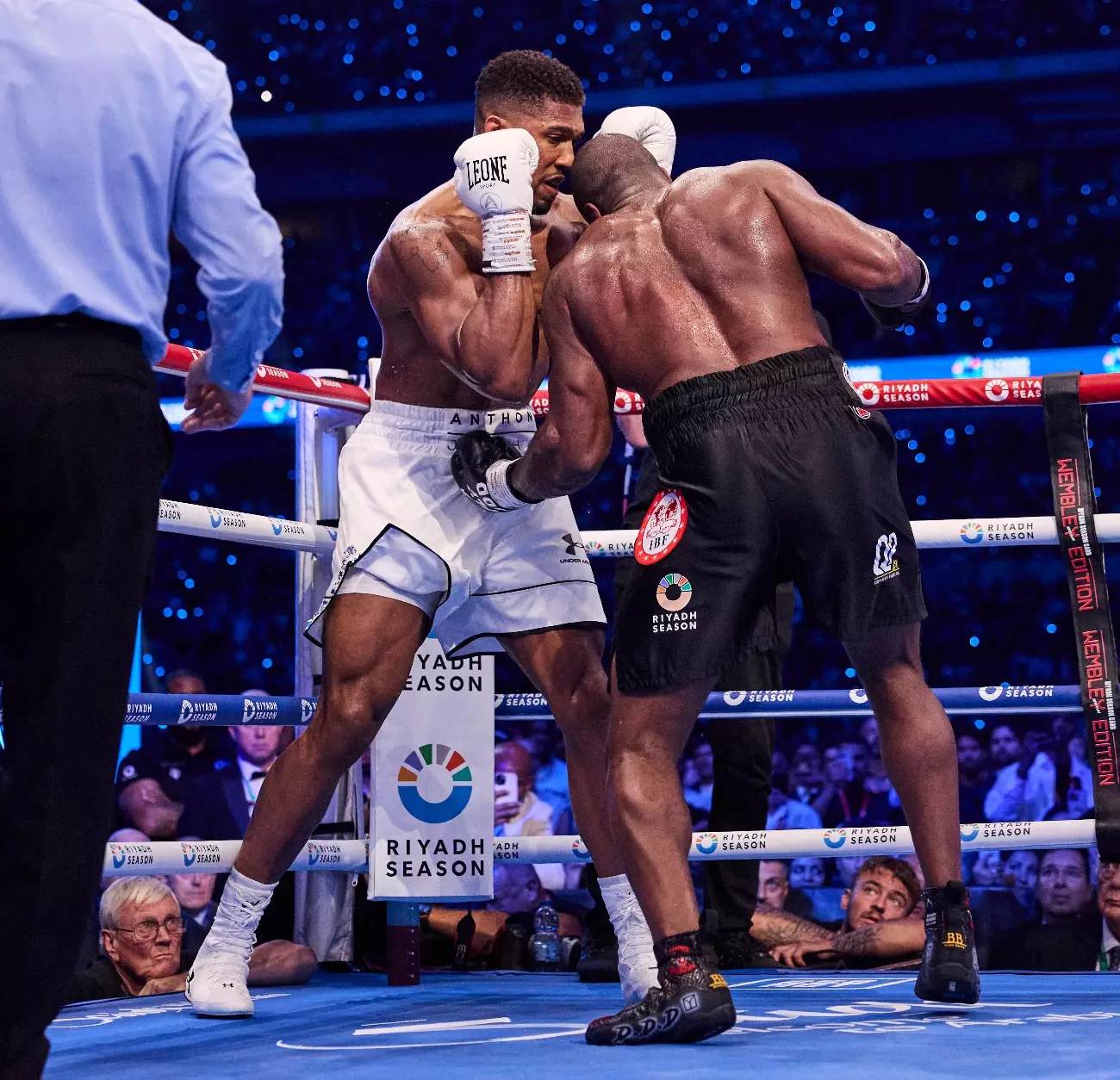In the high-intensity world of boxing, split-second decisions can alter the course of a match, influencing not just its outcome, but also the narrative that unfolds around a fighter’s career. Last Saturday, Anthony Joshua faced off against Daniel Dubois at Wembley Stadium—a bout that many anticipated would define the trajectory of both fighters. However, Joshua’s decision-making and overall preparation for the fight came under intense scrutiny, particularly in light of his failure to take advantage of a critical moment after a low blow from Dubois.
In the third or fourth round, Joshua was hit with a low blow that visibly shifted the momentum of the fight. Rather than utilizing the opportunity to recover fully, as he was entitled to, Joshua opted to forgo the full five-minute timeout, a move criticized heavily by his promoter, Eddie Hearn. In boxing, the dynamics of recovery are complex, as mental acuity sometimes takes precedence over physical resilience. It’s imperative for a fighter to assess not just their immediate ability to continue, but the long-term ramifications of sustaining additional damage. Hearn’s frustration reflects a profound understanding of these nuances, suggesting that Joshua’s decision stemmed from a lack of experience and poorly executed strategy.
Hearn’s comments reveal deep insights into the principles of ringcraft, particularly regarding the necessity of surviving rounds when faced with significant adversities. Comparing Joshua’s performance to that of Oleksandr Usyk, who effectively used a similar timeout earlier in the year against Dubois, Hearn highlights that taking strategic pauses is not merely about physical recuperation; it’s also about regaining psychological dominance within the match. When Joshua ignored the opportunity to regroup, he not only jeopardized his safety but also allowed Dubois to maintain the aggressive momentum he had established. Such dynamics are crucial in heavyweight boxing, where power can shift rapidly and unpredictably.
Joshua’s subpar performance can also be attributed to what appeared to be inadequate preparation and strategy. Reports indicate that Joshua may have been overly muscular for this bout, resulting in a slower-than-expected performance that contrasted sharply with his previous fights. The muscular build, while giving an impression of strength, may have compromised his speed and agility—two elements critical for effective boxing, especially against a younger and more dynamic opponent like Dubois. Trainer Ben Davison can take some of the blame for this oversight; in high-stakes boxing, every ounce of an athlete’s physicality must serve a purpose, and maintaining optimal weight is central to this.
The implications of Joshua’s loss stretch beyond this singular match. For a fighter who has faced considerable adversity throughout his career, including losses that have impacted his public perception, this defeat raises questions about his ability to reclaim his former status in the heavyweight division. Hearn noted that Joshua’s willingness to engage recklessly, without sufficient regard for his condition, could become a recurring theme unless addressed strategically. As fans and analysts dissect the implications of his loss, there looms a pressing question: how will Joshua respond to this setback, and what changes will he implement moving forward?
In hindsight, Joshua’s third-round decision not to take a recovery period exemplifies the dangers present in the boxing ring—where split-second judgments can lead to irrevocable consequences. The fight against Dubois served as a stark reminder that even elite boxers must navigate the uncertainty of their own responses to peril. As the post-fight analysis continues to unfold, Joshua stands at a critical crossroads—one that demands a reevaluation of his approach, his training, and perhaps most importantly, his mental toughness. Whether this defeat marks the end of an era or the beginning of a resurgence remains to be seen, but the lessons learned from this bout will undoubtedly shape his journey ahead.

